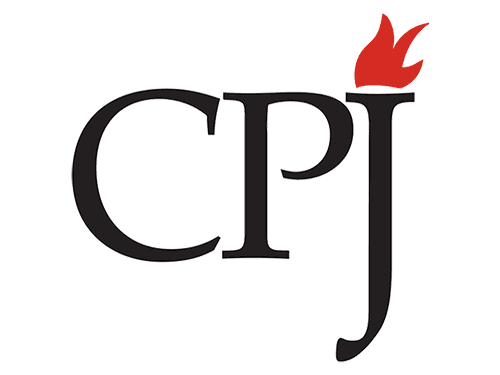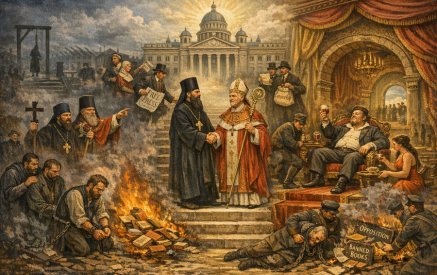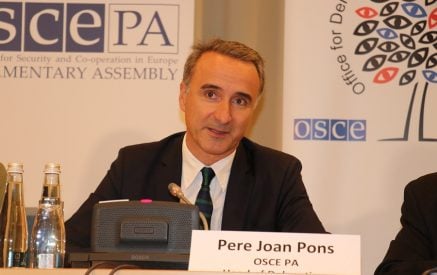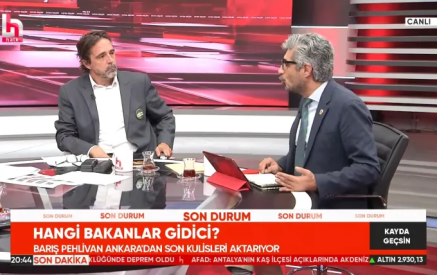The European Olympic Committees (EOC) should establish a complaints hotline for journalists during the 2019 European Games, Human Rights Watch and the Committee to Protect Journalists said today. Belarus will host the games, a multi-sport event for more than 4,000 athletes, in Minsk from June 21-30.
World Press Freedom Day, which will take place on May 3, was created to evaluate and advance press freedom around the world. Belarus has long had a poor record on media freedom and freedom of expression. In the past two years, Belarusian authorities have further tightened regulations on online resources, carried out groundless searches of the editorial offices of several news organizations, and increased prosecutions and other harassment of freelance journalists, ultimately initiating a record number of criminal charges against journalists and bloggers.
“Belarusian authorities have a long and sorry history of contempt for media freedom, so it’s likely they may harass independent journalists in the lead-up and during the European Games,” said Rachel Denber, deputy Europe and Central director at Human Rights Watch. “The European Olympic Committees should be ready to address this.”
President Aliaksandr Lukashenka will have been in office for 25 years in July. His tenure has been marked by entrenched authoritarian rule, Human Rights Watch and the Committee to Protect Journalists said. The government severely restricts independent media and independent organizations and refuses permission for most human rights groups to register and operate freely.
Read also
However, in recent years the government made some improvements to the human rights situation. It has downgraded “unregistered” involvement in non-governmental organizations from a criminal offense to an administrative one, and has released most high-profile political prisoners.
But 2019 is on track to be one of the worst years for media freedom and freedom of expression in Belarus in the past decade, Human Rights Watch and the Committee to Protect Journalists said. In 2018, authorities prosecuted dozens of freelance journalists for cooperating with unregistered foreign media, fining them between US$230 and US$580. In the first three months of 2019, at least seven journalists were prosecuted on these charges.
Police often arrest journalists covering unauthorized peaceful protests along with the protesters. Belarusian authorities use “anti-extremism” legislation to suppress legitimate speech.
In April, police raided the Minsk office of Belsat – a satellite television station registered in Poland that is the only independent television channel broadcasting in Belarus. The raid was in connection with a dubious criminal libel investigation brought by a public official in response to an incident in 2018.
In February 2018, Belarusian courts handed down suspended five-year sentences to three bloggers with Russian-language websites, accusing them of inciting extremism and sowing social discord between Russia and Belarus.
In 2018 and 2019, authorities prosecuted 14 journalists from independent publications for allegedly using passwords for the state news agency, BelTA, without paying the fee for authorization to access it. The criminal charges against them were eventually replaced with administrative charges. Each was fined between 3,000 and 17,000 Belarusian rubles (US$1,420 – $8,050).
A court found Maryna Zolatava, the editor of TUT.BY, one of the publications under investigation, guilty of criminal negligence for allegedly being aware that her staff was using login data for BeITA’s paid subscription. It fined her 7,650 Belarusian rubles.
In the context of government efforts to control the media in Belarus, freedom of expression activists believe that these cases were pursued as retaliation against news outlets rather than in response to genuine concern about illegal activity, Human Rights Watch and the Committee to Protect Journalists said.
Human rights and media freedom groups have repeatedly urged the European Olympic Committees to establish media freedom procedures for the Minsk Games. In letters sent in January 2018 and January 2019, the Sport & and Rights Alliance, a coalition of independent groups including Human Rights Watch and the Committee to Protect Journalists, urged the EOC to immediately set up a hotline or grievance mechanism, “share the details widely with the Belarusian journalist community as well as externally,” and “provide assurances that complaints will be handled immediately and effectively.”
The European Olympic Committees, an association of 50 National Olympic Committees, owns and regulates the European Games. The EOC and its members are part of the Olympic Movement and governed by the Olympic Charter, which has explicit guarantees for media freedom. The International Olympic Committee (IOC) made media freedom grievance procedures available during the 2016 Rio Olympic Games and the 2018 Pyeonchang Winter Olympics, and FIFA made a grievance procedure available during the 2018 World Cup in Russia.
“Media grievance systems have become an important new standard to advance media freedom around mega-events like the European Games,” said Gulnoza Said, Europe and Central Asia program coordinator at the Committee to Protect Journalists. “In a repressive environment such as Belarus, it is essential for the European Olympic Committees and the IOC to stand up for press freedom and ensure that journalists can do their jobs safely.”






















































